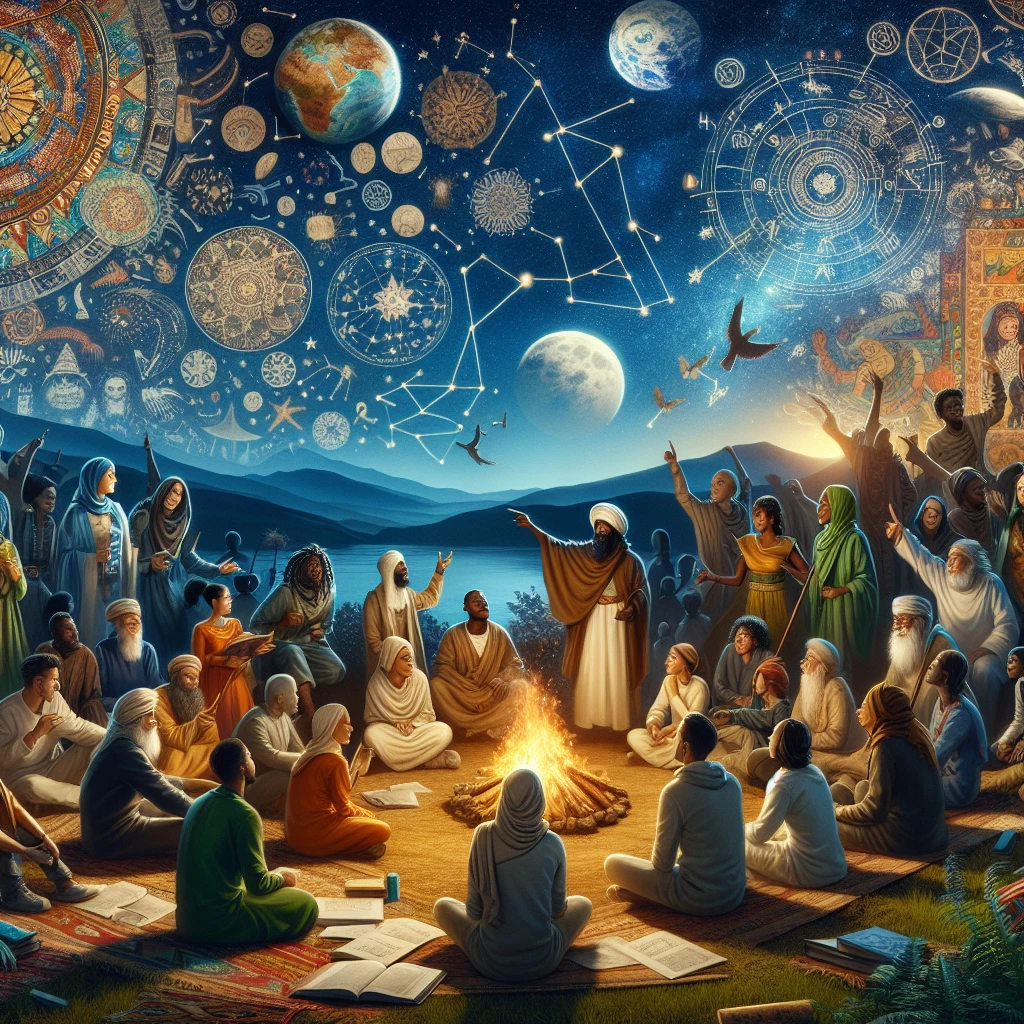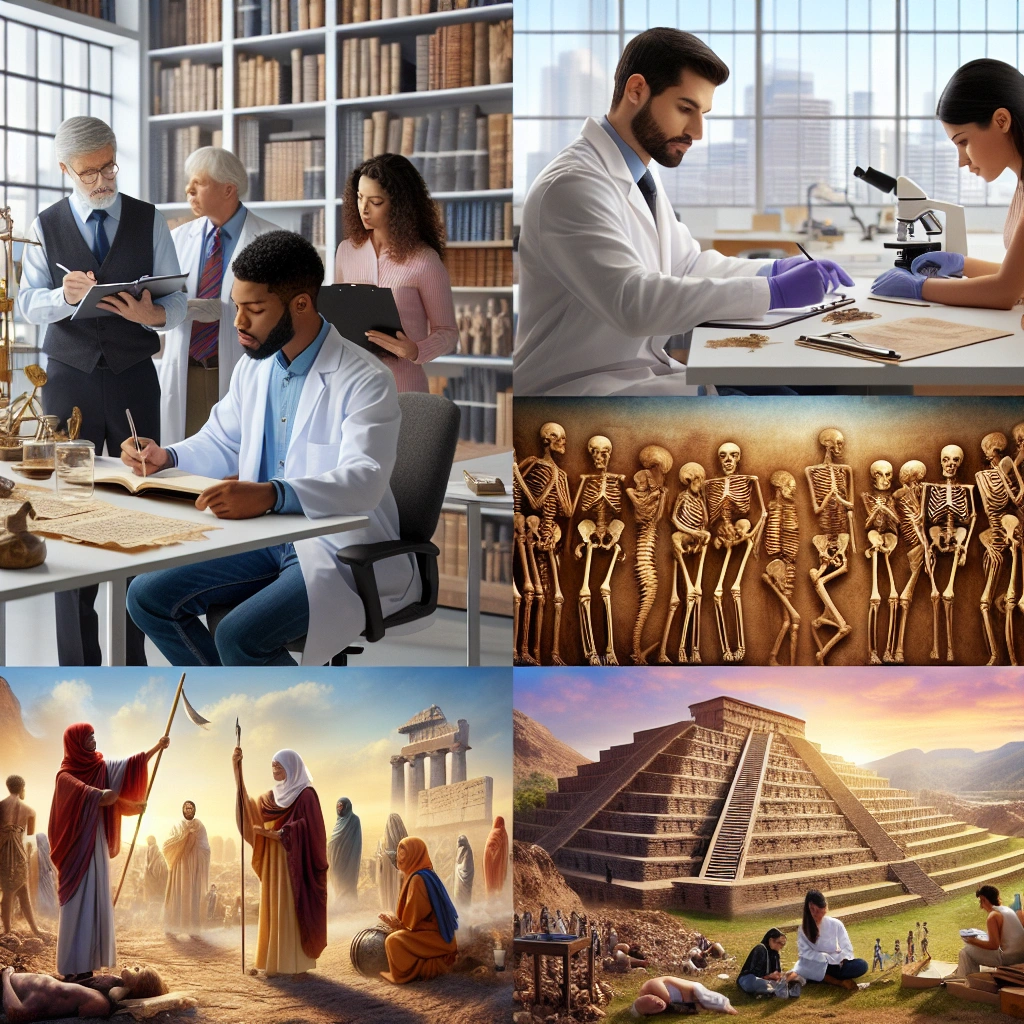Debunk Myth Meaning: Uncover The Truth


Debunking a myth means exposing the truth behind a widely held belief or misconception. It is important to uncover the truth behind myths in order to prevent the spread of misinformation and to promote accurate knowledge.
Debunking myths helps in providing clarity and promoting critical thinking among individuals.
Check out this Youtube video: “Neurologists Debunk 11 Brain Myths | Science Insider” and be prepared to have your mind blown as experts uncover the truth behind common misconceptions about the brain.
The History of Debunking Myths
The origin of debunking myths
Debunking myths is as old as human civilization itself. Early humans likely debunked myths within their own communities to distinguish fact from fiction, enabling the survival and progress of human societies.
From early days, individuals could use their experiences and observations to debunk myths and guide their communities towards accurate knowledge and understanding.
How debunking myths has evolved over time
Debunking myths has evolved significantly over time, especially with the advent of modern communication and dissemination of knowledge. In the past, myth debunking was largely passed down through oral traditions and community leaders.
Today, the evolution of mass media, the internet, and social media has transformed the debunking process, allowing for widespread dissemination of knowledge and rapid correction of misinformation. This evolution has made debunking myths a crucial part of maintaining informed and rational societies.
The Meaning of “Debunk Myth”
Defining the term “debunk myth”
In essence, debunking a myth involves revealing the falsehood or inaccuracy of widely held beliefs or misconceptions. It is the act of exposing myths as untrue through evidence-based analysis, factual information, and rational arguments.
Exploring the significance of debunking myths in society
The significance of debunking myths in society cannot be overstated. It helps to prevent the spread of misinformation, promotes critical thinking, and fosters a more informed and educated populace.
By challenging misconceptions and false beliefs, debunking myths contributes to a more rational and evidence-based understanding of the world around us.
Common Myths and Misconceptions
Examples of popular myths
There are numerous popular myths that have prevailed through generations, like the urban legend of alligators in the New York City sewers or the misconception that bulls get angry when they see the color red. These myths often stem from misunderstandings, exaggerations, or misinterpretations that have been perpetuated over time.
Impact of misinformation on society
Misinformation can have a profound impact on society, leading to confusion, fear, and a lack of trust in credible sources. From spreading fake news to perpetuating social stereotypes, misinformation has the potential to sway public opinion, cause harm, and worsen societal divisions.
Its negative effects can be far-reaching, affecting everything from public health decisions to political discourse.
| Misinformation Effect | Description |
|---|---|
| Social Division | Misinformation often fuels division among communities, leading to a lack of trust and understanding. |
| Public Health Crisis | Misinformation can exacerbate public health crises by spreading false information about cures, treatments, or preventative measures. |
| Political Discontent | False information can significantly influence public opinion and contribute to societal unrest and dissatisfaction. |
Misinformation thrives in a digital age where information spreads rapidly, and individuals should strive to critically evaluate the information they encounter to combat the impact of misinformation on society.
Uncovering the Truth
Tools and methods for debunking myths
To debunk myths effectively, utilizing tools and methods is crucial. Fact-checking websites like Snopes and PolitiFact offer a valuable resource to verify information and counter misinformation.
Employing critical thinking and analyzing sources, such as scientific studies, can also serve as powerful tools in debunking myths. Additionally, promoting media literacy and educating individuals on how to discern credible information from false claims can significantly contribute to debunking myths in today’s information age.
Debunking myths in the age of technology and social media
In today’s digital era, combating myths in technology and social media requires a multi-faceted approach. Emphasizing the dissemination of accurate information through reputable platforms is essential to counter the influence of misinformation.
Engaging with fact-checking initiatives and promoting critical thinking in digital literacy programs can help cultivate a more discerning online community. Moreover, leveraging the power of social media for sharing verified facts and engaging in open dialogue can play a pivotal role in debunking myths amidst the prevalent spread of misinformation.
The Psychology Behind Myth-Busting
Believing in myths can provide a sense of comfort and purpose, especially when the myth aligns with the individual’s beliefs and values. It offers a feeling of security and belonging, contributing to a person’s psychological well-being.
Understanding why people believe in myths
People tend to believe in myths due to the emotional relevance and personal significance they hold. Myths often cater to our deep-seated emotional needs and desires, offering a sense of meaning and understanding about the world around us.
Cognitive biases and their influence on myth perpetuation
Cognitive biases play a pivotal role in perpetuating myths as they impact how information is processed and interpreted. Confirmation bias, for example, leads individuals to seek and favor information that aligns with their pre-existing beliefs, reinforcing the perpetuation of myths.
Debunking Myths in Different Cultures
Cultural variations in myth debunking
Cultural variations in myth debunking are intriguing as they reveal the diverse perspectives and beliefs held across different societies. These variations often stem from historical, societal, and geographical influences, shaping the way myths are perceived and debunked.
For instance, the myth of Bigfoot in the Pacific Northwest of the United States may be debunked through scientific investigations, while in other cultures, it may be accepted as a part of folklore.
The role of folklore and traditions in perpetuating myths
Folklore and traditions play a pivotal role in perpetuating myths within various cultures. They act as the vessel through which these myths are passed down through generations, preserving cultural heritage and identity.
For example, the legend of the Loch Ness Monster in Scottish folklore has been perpetuated through storytelling and traditional celebrations, creating a sense of continuity and community within the culture.
The Role of Science in Debunking Myths
Scientific methods for debunking myths
One of the key scientific methods for debunking myths involves emphasizing the facts rather than the myth itself. By focusing on empirical evidence and presenting clear, verifiable information, science can effectively challenge and refute misinformation.
Additionally, leveraging the concept of “inoculation” allows scientists to build resistance to misinformation by providing a weak form of the myth and then providing the accurate, evidence-based facts to counter it.
Examples of scientific breakthroughs in dispelling myths
An exemplary scientific breakthrough in dispelling myths is the study that suggests redirecting beliefs as an effective method. By repeatedly showcasing accurate information and redirecting the focus away from misinformation, scientists have successfully helped people forget inaccurate beliefs.
Moreover, the use of empirical evidence, such as in climate science, has been instrumental in dispelling myths. For instance, removing urban stations from the global temperature record enables scientists to present more accurate data, shedding light on the reality of climate patterns and dispelling myths.
Ethics of Debunking Myths
Debunking myths requires a delicate balance between respecting individuals’ freedom of belief and the need for truth. While it is essential to honor diverse perspectives, it is equally crucial to ensure that accurate information prevails.
This equilibrium necessitates a thoughtful approach that respects differing beliefs while striving to establish factual foundations.
When debunking myths, the impact on different communities must be carefully considered. Effective communication strategies are imperative to debunking myths while minimizing potential negative repercussions on various communities.
By employing respectful and empathetic discourse, the process of dispelling misinformation can foster understanding and cohesion within diverse groups.
Debunking Political Myths
The prevalence of political myths is widespread, often taking the form of long-standing misconceptions that are ingrained in the public consciousness. These myths can be perpetuated by political figures, media outlets, and even social media platforms, leading to their widespread acceptance as truths.
For example, the myth that George Washington wasn’t the first U. S. president continues to persist despite historical evidence to the contrary.
The consequences of political misinformation are far-reaching, significantly impacting public trust in institutions and distorting views on crucial issues. Such misinformation erodes confidence in the media and can influence the political process, as seen in the aftermath of the 2020 election.
Additionally, it shapes public opinion and can lead to a polarization of beliefs, further deepening divisions within society. This has a detrimental effect on democracy and civic engagement, perpetuating a cycle of misinformation that is challenging to correct.
Debunking Health Myths
Examples of common health myths
- Myth: Eggs (or egg yolks) are bad for you.
- Myth: Fresh fruits and vegetables are always healthier than canned or frozen.
The importance of debunking health misinformation
It’s crucial to debunk health misinformation to ensure people make well-informed choices about their health. Misconceptions about food, like the belief that eggs are bad for you, can lead to unnecessary dietary restrictions.
Simultaneously, the misconception that fresh fruits and vegetables are always healthier than canned or frozen can impact people’s dietary choices. By dispelling these myths and providing accurate information, individuals can make healthier decisions, leading to improved overall well-being.
Debunking Historical Myths
Historical events and their associated myths
Historical events often become entangled with myths and legends, blurring the line between fact and fiction. Take, for instance, the widely believed myth of Vikings wearing horns on their helmets.
This misconception has perpetuated through popular media, but historical evidence shows no contemporary image or source referencing such headgear. By debunking such myths, we can unravel the truth from these embellished tales and enrich our understanding of history.
The significance of debunking historical misconceptions
Debunking historical misconceptions holds immense significance in shaping our collective understanding of the past. For example, dispelling the myth that Britain fought alone in 1940 is crucial in acknowledging the immense imperial network that supported the country during that time.
By unraveling these myths, we foster a more accurate and comprehensive understanding of historical events, allowing us to appreciate their true context and significance.
Debunking Myths in the Media
The role of media in perpetuating or debunking myths
The media plays a pivotal role in both perpetuating and debunking myths. On one hand, it has the power to perpetuate myths by sensationalizing stories and spreading misinformation, thus shaping public opinion.
On the other hand, it holds the responsibility of debunking myths by providing accurate and well-researched information to the public. The way a story is reported and the language used can significantly impact the perpetuation or debunking of myths.
The responsibility of journalists and media outlets in myth-busting
Journalists and media outlets bear the responsibility of myth-busting by adhering to ethical reporting standards and fact-checking. They should prioritize accuracy and in-depth research to ensure that their content debunks myths rather than perpetuating them.
Providing context and verified information is crucial in dismantling myths, and journalists should be steadfast in their commitment to presenting the truth to the public. Media outlets and journalists have the power to influence public perception and should use it responsibly to dispel myths and promote accurate information.
Perpetuating Myths
Debunking Myths
Sensationalizing stories
Adhering to ethical reporting
Spreading misinformation
Prioritizing accuracy
Shaping public opinion
Commitment to presenting the truth
Debunking Myths in Education
Incorporating critical thinking and myth debunking in education
Incorporating critical thinking and myth debunking in education is essential for fostering a culture of inquiry and intellectual skepticism among students. By encouraging students to question preconceived notions and challenge commonly held beliefs, educators can equip them with the skills to analyze information critically and discern fact from fiction.
This approach not only cultivates a deeper understanding of subject matter but also empowers students to become more discerning and analytical thinkers in their academic pursuits and beyond.
The impact of myth debunking on students’ knowledge and beliefs
The impact of myth debunking on students’ knowledge and beliefs is profound, shaping their cognitive development and intellectual resilience. When students engage in myth debunking exercises, they not only gain a more accurate understanding of the subject matter but also develop a healthy skepticism towards unsubstantiated claims.
This fosters a more nuanced and evidence-based approach to learning, empowering students to differentiate between facts and misconceptions, thereby promoting a more robust and informed worldview. Myth debunking nurtures a culture of intellectual curiosity and critical inquiry, laying the foundation for lifelong learning and rational decision-making.
Below is the table that reflects the impacts and benefits of incorporating critical thinking and myth debunking in education:
| Benefits of Critical Thinking and Myth Debunking in Education |
|---|
| Fosters intellectual skepticism and inquiry |
| Equips students with analytical skills |
| Promotes evidence-based understanding |
| Nurtures nuanced perspectives |
| Empowers rational decision-making |
| Cultivates a culture of curiosity |
| Encourages lifelong learning |
| Shapes informed and discerning individuals |
The Impact of Debunking Myths on Society
Debunking myths has significantly influenced societal beliefs by challenging long-standing misconceptions and promoting factual information. For example, the debunking of the myth surrounding mental illness and violence has helped dispel stigmatization and discrimination associated with individuals dealing with mental health conditions.
The potential benefits of myth debunking on community well-being are immense. By debunking health-related misinformation, communities can make informed decisions about their well-being, leading to improved health outcomes and reduced anxiety about misleading health advice.
Recommended Amazon Products for Debunking Myths
Here’s a curated list of products that can help you debunk myths with ease. These recommendations are based on functionality, price, and reviews.
1. Encyclopedia of Mysterious Places
This comprehensive book provides in-depth information on various historical events and myths associated with different locations. It includes detailed accounts of myths and legends from around the world, making it an invaluable resource for those interested in debunking misconceptions. Available on Amazon here.


Pros and Cons
| Pros | Cons |
|---|---|
| Extensive coverage of myths and legends | Physical book may be bulky |
| Well-researched information | High price point |
| Beautiful illustrations | Limited focus on specific regions |
2. Skeptic: Viewing the World with a Rational Eye
This thought-provoking magazine publication is dedicated to critical thinking and skepticism. It covers a wide range of topics including science, pseudoscience, and the supernatural, providing readers with the tools to address myths and misconceptions. Available on Amazon here.


Pros and Cons
| Pros | Cons |
|---|---|
| Timely and relevant content | Subscription-based model may be expensive |
| Diverse range of topics | Limited availability in certain regions |
| Features renowned experts and writers | Not suitable for those looking for quick debunking resources |
3. Critical Thinking: Proven Strategies to Improve Decision Making Skills
This book offers practical techniques for enhancing critical thinking skills, making it easier to identify and challenge myths. It provides actionable advice for assessing information, recognizing biases, and making logical decisions, essential for debunking myths effectively. Available on Amazon here.


Pros and Cons
| Pros | Cons |
|---|---|
| Well-structured and easy to understand | May not cater to advanced critical thinkers |
| Incorporates real-life examples | Does not cover specific myths and misconceptions |
| Applicable to various aspects of life | Not a quick-fix resource for debunking myths |
4. MythBusters: The Complete Series DVD Set
This engaging and entertaining DVD set features the popular television show MythBusters, known for debunking urban legends and popular myths through science and experimentation. It offers an engaging way to learn about myths and the process of debunking them. Available on Amazon here.


Pros and Cons
| Pros | Cons |
|---|---|
| Entertaining and educational content | Limited to specific myths featured in the show |
| Detailed explanations of scientific experiments | May not suit those looking for a comprehensive resource |
| Suitable for visual learners | Limited to a specific audience interested in the show |
5. The Skeptic’s Guide to the Universe: How to Know What’s Really Real in a World Increasingly Full of Fake
This insightful book provides valuable insights into critical thinking, scientific literacy, and skepticism. It equips readers with the tools needed to navigate a world filled with misinformation, making it a valuable resource for debunking myths. Available on Amazon here.


Pros and Cons
| Pros | Cons |
|---|---|
| Engaging and informative content | Lengthy read, may not be suitable for everyone |
| Comprehensive coverage of critical thinking principles | Intensive and may require time for in-depth reading |
| Relevant to modern issues and challenges | Not focused solely on myth debunking |
Top Recommended Product for Debunking Myths
If you’re looking for the best solution for debunking myths, we highly recommend the Encyclopedia of Mysterious Places (https://www.amazon.com/s?k=Encyclopedia+of+Mysterious+Places). This comprehensive resource offers extensive coverage of myths and legends, making it an invaluable tool for tackling common misconceptions.


Ready to improve your critical thinking and myth-busting skills? Check out the Encyclopedia of Mysterious Places (https://www.amazon.com/s?k=Encyclopedia+of+Mysterious+Places) today for the best results!


Conclusion
Debunking myths is crucial because it helps to uphold the truth and prevent misinformation from spreading. By uncovering the facts behind common misconceptions, we can promote accurate knowledge and understanding within society.
Furthermore, debunking myths can have significant implications on various aspects of life, including health, culture, and society as a whole. By dispelling false beliefs, we can prevent harmful practices and promote positive behaviors, leading to overall well-being and progress.
Debunking myths serves to foster a more informed and enlightened society. It allows for better decision-making, improved critical thinking, and a more accurate understanding of the world around us, leading to a more harmonious and thriving community.

















